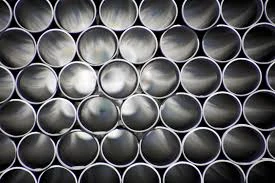
-
 Afrikaans
Afrikaans -
 Albanian
Albanian -
 Amharic
Amharic -
 Arabic
Arabic -
 Armenian
Armenian -
 Azerbaijani
Azerbaijani -
 Basque
Basque -
 Belarusian
Belarusian -
 Bengali
Bengali -
 Bosnian
Bosnian -
 Bulgarian
Bulgarian -
 Catalan
Catalan -
 Cebuano
Cebuano -
 China
China -
 China (Taiwan)
China (Taiwan) -
 Corsican
Corsican -
 Croatian
Croatian -
 Czech
Czech -
 Danish
Danish -
 Dutch
Dutch -
 English
English -
 Esperanto
Esperanto -
 Estonian
Estonian -
 Finnish
Finnish -
 French
French -
 Frisian
Frisian -
 Galician
Galician -
 Georgian
Georgian -
 German
German -
 Greek
Greek -
 Gujarati
Gujarati -
 Haitian Creole
Haitian Creole -
 hausa
hausa -
 hawaiian
hawaiian -
 Hebrew
Hebrew -
 Hindi
Hindi -
 Miao
Miao -
 Hungarian
Hungarian -
 Icelandic
Icelandic -
 igbo
igbo -
 Indonesian
Indonesian -
 irish
irish -
 Italian
Italian -
 Japanese
Japanese -
 Javanese
Javanese -
 Kannada
Kannada -
 kazakh
kazakh -
 Khmer
Khmer -
 Rwandese
Rwandese -
 Korean
Korean -
 Kurdish
Kurdish -
 Kyrgyz
Kyrgyz -
 Lao
Lao -
 Latin
Latin -
 Latvian
Latvian -
 Lithuanian
Lithuanian -
 Luxembourgish
Luxembourgish -
 Macedonian
Macedonian -
 Malgashi
Malgashi -
 Malay
Malay -
 Malayalam
Malayalam -
 Maltese
Maltese -
 Maori
Maori -
 Marathi
Marathi -
 Mongolian
Mongolian -
 Myanmar
Myanmar -
 Nepali
Nepali -
 Norwegian
Norwegian -
 Norwegian
Norwegian -
 Occitan
Occitan -
 Pashto
Pashto -
 Persian
Persian -
 Polish
Polish -
 Portuguese
Portuguese -
 Punjabi
Punjabi -
 Romanian
Romanian -
 Russian
Russian -
 Samoan
Samoan -
 Scottish Gaelic
Scottish Gaelic -
 Serbian
Serbian -
 Sesotho
Sesotho -
 Shona
Shona -
 Sindhi
Sindhi -
 Sinhala
Sinhala -
 Slovak
Slovak -
 Slovenian
Slovenian -
 Somali
Somali -
 Spanish
Spanish -
 Sundanese
Sundanese -
 Swahili
Swahili -
 Swedish
Swedish -
 Tagalog
Tagalog -
 Tajik
Tajik -
 Tamil
Tamil -
 Tatar
Tatar -
 Telugu
Telugu -
 Thai
Thai -
 Turkish
Turkish -
 Turkmen
Turkmen -
 Ukrainian
Ukrainian -
 Urdu
Urdu -
 Uighur
Uighur -
 Uzbek
Uzbek -
 Vietnamese
Vietnamese -
 Welsh
Welsh -
 Bantu
Bantu -
 Yiddish
Yiddish -
 Yoruba
Yoruba -
 Zulu
Zulu
Exploring the Applications and Benefits of FRP Field Tanks in Various Industries
Understanding FRP Field Tanks A Sustainable Solution for Liquid Storage
In recent years, the demand for efficient and sustainable storage solutions has surged, particularly in the agricultural, industrial, and municipal sectors. One innovative solution that has gained significant traction is the use of Fiber-Reinforced Plastic (FRP) field tanks. These tanks offer a myriad of benefits due to their unique properties, making them an ideal choice for various liquid storage needs.
What are FRP Field Tanks?
FRP field tanks are storage tanks made from a composite material that consists of a polymer matrix reinforced with fibers, usually glass or carbon. The combination of these materials results in a tank that is lightweight, strong, and resistant to corrosion. This makes FRP tanks suitable for storing various liquids, including water, chemicals, and agricultural liquids.
Advantages of FRP Field Tanks
1. Corrosion Resistance One of the standout features of FRP tanks is their exceptional resistance to corrosion. Unlike traditional metal tanks, which can rust and degrade over time, FRP tanks maintain their integrity even when exposed to harsh chemicals or environmental conditions. This property not only extends the lifespan of the tank but also reduces maintenance costs.
2. Lightweight and Durable FRP tanks are significantly lighter than steel or concrete tanks, making them easier to transport and install. Their lightweight nature also means that less structural support is required, further lowering installation costs. Despite their light weight, FRP tanks are incredibly durable and can withstand substantial stress and pressure.
3. Customizability FRP field tanks can be tailored to suit specific needs. They can be manufactured in various shapes and sizes, allowing for versatility in installation. Whether for residential, commercial, or industrial use, these tanks can be easily customized to fit the required specifications.
4. Environmental Benefits As sustainability becomes a more pressing concern globally, FRP tanks present an eco-friendly option. They are often made from recyclable materials, reducing environmental impact. Furthermore, their durability means fewer tanks need to be produced over time, resulting in less resource consumption.
frp field tank

5. Low Thermal Conductivity Another advantage of FRP tanks is their low thermal conductivity. This helps in maintaining the temperature of the stored liquid, which is particularly beneficial for agricultural applications where maintaining specific temperatures can be crucial for crop health.
Applications of FRP Field Tanks
FRP field tanks find application across various sectors. In agriculture, they are ideal for storing water for irrigation or chemicals for crop protection. Their resistance to chemicals and environmental factors makes them suitable for holding fertilizers and pesticides, ensuring that these essential supplies are safeguarded.
In industrial settings, FRP tanks are often used for storing corrosive chemicals, wastewater, or other fluids. Their durability and low maintenance requirements make them a cost-effective choice for businesses looking to optimize their operations. Additionally, municipalities can utilize FRP tanks for storing potable water or treating wastewater, contributing to better water management practices.
Challenges and Considerations
While FRP field tanks offer numerous benefits, there are some considerations to keep in mind. The initial investment for FRP tanks can be higher than traditional storage solutions. However, the long-term savings on maintenance and longevity often make them more economical in the long run. Furthermore, it is vital to ensure that the tank is properly designed and manufactured to meet the specific requirements of the stored liquid.
Conclusion
FRP field tanks represent a transformative shift in liquid storage solutions. Their lightweight nature, corrosion resistance, and environmental benefits make them an attractive option for various industries. As we continue to prioritize sustainability and efficiency, the adoption of FRP tanks is likely to grow, providing a reliable and innovative solution for liquid storage challenges. With advancements in technology and increased awareness about sustainable practices, FRP field tanks are poised to play a significant role in the future of liquid storage.









